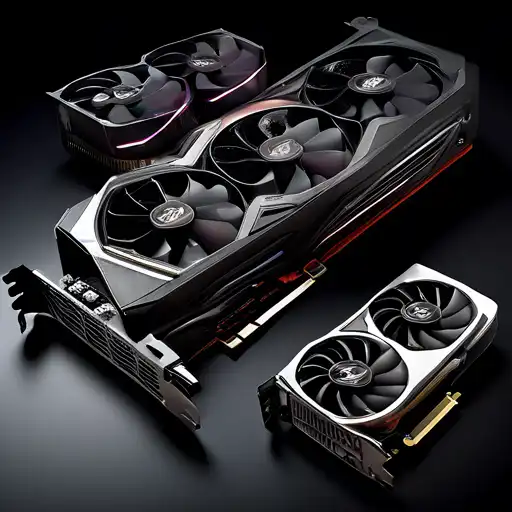Introduction to Choosing the Right GPU for Gaming
Choosing the right GPU (Graphics Processing Unit) is crucial for an optimal gaming experience. The GPU is the heart of your gaming PC, responsible for rendering images, animations, and video for the computer's screen. With so many options available, selecting the perfect one can be overwhelming. This guide will help you navigate through the key factors to consider when choosing a GPU for gaming.
Understanding GPU Specifications
Before diving into the market, it's essential to understand the specifications that define a GPU's performance. These include:
- Core Clock Speed: Measured in MHz, this indicates how fast the GPU's core operates.
- Memory: The amount of VRAM (Video RAM) is crucial for higher resolution textures and smoother gameplay.
- Memory Bandwidth: This affects how quickly the GPU can access the VRAM.
- Shader Cores: More cores mean better performance in rendering complex scenes.
Matching the GPU to Your Gaming Needs
Not all games require the same level of GPU performance. Consider the types of games you play:
- Casual Games: Less demanding titles can run smoothly on mid-range GPUs.
- AAA Titles: High-end games with advanced graphics require a powerful GPU for the best experience.
- VR Gaming: Virtual reality games demand top-tier GPUs to handle the high frame rates and resolutions.
Budget Considerations
Your budget plays a significant role in the GPU you can afford. Here's a rough guide:
- Entry-Level: Suitable for casual gaming and older titles.
- Mid-Range: Offers a good balance between price and performance for most modern games.
- High-End: Designed for enthusiasts who want the best performance, regardless of cost.
Future-Proofing Your Investment
Technology evolves rapidly, and today's high-end GPU may become tomorrow's mid-range. Consider future-proofing by:
- Choosing a GPU with more VRAM than currently needed.
- Opting for models that support the latest technologies like ray tracing and DLSS.
Compatibility with Your System
Ensure the GPU you choose is compatible with your PC's:
- Power Supply: High-performance GPUs require more power.
- Motherboard: Check for the correct PCIe slot.
- Case Size: Some GPUs are large and may not fit in smaller cases.
Conclusion
Selecting the right GPU for gaming involves balancing performance, budget, and future needs. By understanding the specifications and considering your gaming habits, you can make an informed decision that enhances your gaming experience. Remember to also consider the compatibility with your existing system to avoid any issues.
For more tips on building or upgrading your gaming PC, check out our gaming PC build guide.
